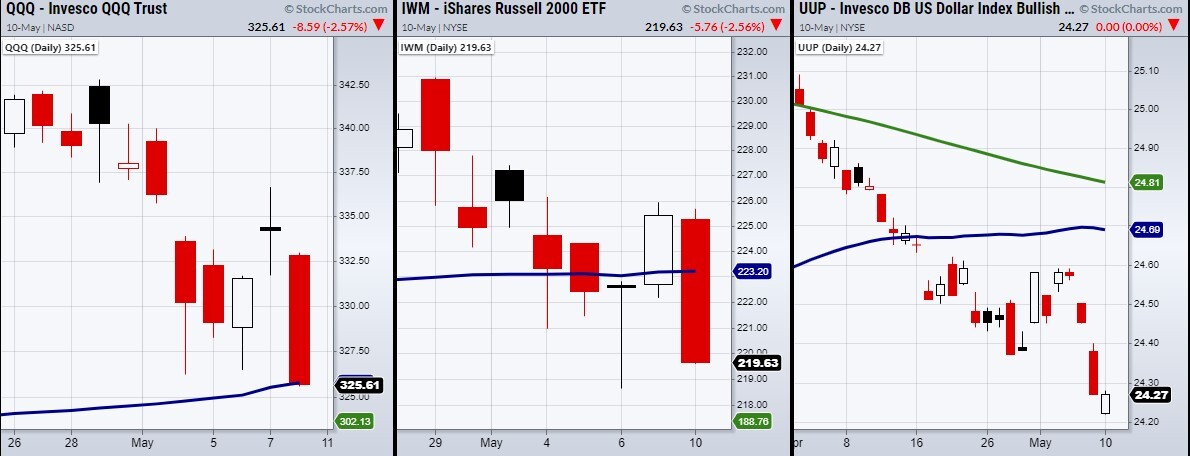In this article, Forrest Crist-Ruiz, assistant director of trading research and education at MarketGauge.com, explores what a weakening dollar could mean for the market.
The iShares Russell 2000 ETF [IWM] and the Nasdaq 100 (represented by the Invesco QQQ Trust [QQQ]) have both broken their 50-day moving averages.
Meanwhile, the iShares Transportation Average ETF [IYT] printed another new all-time high. This shows the market's current indecision and choppy nature.

The market's uncertainty may be related to inflation, which is set to increase beyond 2% going into 2022.
Another factor within the inflation realm is the decreasing value of the US dollar (represented by the Invesco DB US Dollar Index Bullish [UUP]), which is not far from this year’s all-time low at $24.05.
It can be debated historically that a weakening dollar does not contribute to rising inflation, as in the past countries that export to the US have a fair amount of competition and could eat the cost of a weaker dollar for the benefit of doing business with the US.
So why is this time different?
Not only does the US have $28trn of debt, but it is also looking to add even more.
However, the biggest move in UUP will come first from a shift in investors’ sentiment as they perceive the US dollar as a weakening currency.
This is how the dollar could move lower, as investors turn away US issued bonds looking for safer places to park their money.
Additionally, if the dollar becomes weak enough it could be tempting for enough countries to increase their export prices.
With that said, this is a long-term trend that has yet to unfold but should not be taken out of the picture, especially if the dollar continues to trend lower.
This article was originally published on MarketGauge. With over 100 years of combined market experience, MarketGauge's experts provide strategic information to help you achieve your investing goals.
Disclaimer Past performance is not a reliable indicator of future results.
CMC Markets is an execution-only service provider. The material (whether or not it states any opinions) is for general information purposes only, and does not take into account your personal circumstances or objectives. Nothing in this material is (or should be considered to be) financial, investment or other advice on which reliance should be placed. No opinion given in the material constitutes a recommendation by CMC Markets or the author that any particular investment, security, transaction or investment strategy is suitable for any specific person.
The material has not been prepared in accordance with legal requirements designed to promote the independence of investment research. Although we are not specifically prevented from dealing before providing this material, we do not seek to take advantage of the material prior to its dissemination.
CMC Markets does not endorse or offer opinion on the trading strategies used by the author. Their trading strategies do not guarantee any return and CMC Markets shall not be held responsible for any loss that you may incur, either directly or indirectly, arising from any investment based on any information contained herein.
*Tax treatment depends on individual circumstances and can change or may differ in a jurisdiction other than the UK.
Continue reading for FREE
- Includes free newsletter updates, unsubscribe anytime. Privacy policy



